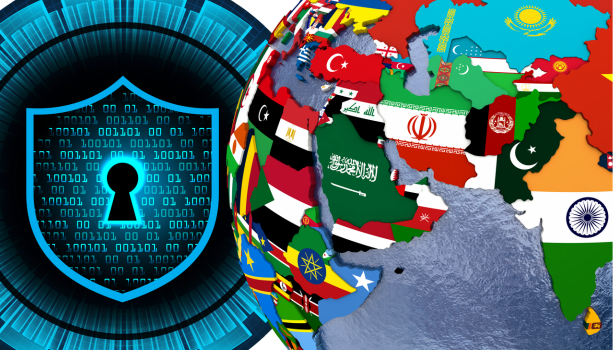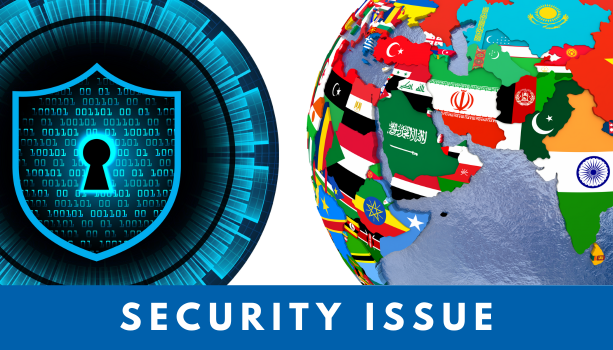[Security Issue] Digital Transformation in Southeast Asia and the Middle East

Digital Transformation in Southeast Asia
How is Southeast Asia and the Middle East Handling Digital Transformation?
As digital transformation accelerates globally, Southeast Asia and the Middle East are emerging as key regions of rapid technological growth. Southeast Asia, home to 670 million people and an annual economic growth rate exceeding 5%, has become one of the fastest-growing digital markets in the Asia-Pacific region. Namely, countries like Vietnam, Thailand, Indonesia, and Malaysia are experiencing explosive growth in sectors such as e-commerce, fintech, and smart cities, fueled by government-led infrastructure investment and with its young population.
Adding on, the Middle East is also undergoing digital transformation. In the Middle East, Saudi Arabia’s Vision 2030 and the UAE’s Digital Government 2025 are propelling large-scale digital transformation projects. With financial resources from oil revenues and strong governmental commitment, countries in the region are actively investing in advanced technologies such as AI, blockchain, and cloud computing. In particular, cities like Dubai and Riyadh are fast becoming global technology hubs, leading the Middle East’s digital innovation efforts.
However, this rapid digital advancement also brings escalating cybersecurity threats. Both regions are in the early stages of digital transformation. However, their security infrastructure and response capabilities are not yet fully matured. As a result, they are increasingly exposed to sophisticated and diverse cyberattacks. These vulnerabilities now represent critical threats to national security and socio-economic stability, rather than merely technical concerns.
What Cybersecurity Challenges are Rising in the Southeast Asia?
The surge in digital economic activity in Southeast Asia has been accompanied by an unprecedented rise in cybersecurity threats. In particular, the expansion of e-commerce platforms and the widespread adoption of digital payment systems is causing the rise of cyberattacks. For example, Vietnam alone experienced approximately 20 million brute-force attack attempts in 2024. That is accounting for 37% of all cyberattacks in the region. However, compared to the amount of attacks, there are only few professionals to respond to these attacks. In fact, according to one research, only 11% of organizations in Vietnam are equipped to respond effectively to cyber incidents.
In response, Southeast Asian countries are implementing multi-layered cybersecurity strategies.
For example, Singapore, under the leadership of its Cyber Security Agency, has launched the “National Cybersecurity Strategy 2030” focusing on critical infrastructure protection. Adding on, Thailand has established a Cybersecurity Operations Center under the Ministry of Digital Economy and Society, enabling real-time threat monitoring. In addition, Vietnam has amended its national cybersecurity law in partnership with the Ministry of Information and Communications, reinforcing data localization requirements.
Similarly, financial institutions across the region are accelerating their adoption of Zero Trust Architecture. Moreover they are deploying AI-driven systems for real-time fraud detection. E-commerce companies are also expanding the use of multi-factor authentication and biometric identification technologies. Even more, the ASEAN Cybersecurity Coordinating Committee has been formed to promote threat intelligence sharing and joint response mechanisms among member states. Likewise, regular public-private cybersecurity drills are also being conducted to enhance regional preparedness.

How is the Middle East Defending Cyber Threats?
As Middle Eastern governments pursue transformative digital agendas, they also face new cybersecurity challenges. The development of smart cities and digitalization of critical infrastructure significantly raise the risk of nation-state cyberattacks. The integration of Operational Technology (OT) and Information Technology (IT) in the oil and gas sector has created new attack vectors. Notably, the region has recorded the highest global increase in ransomware incidents. This trend reflects how the region’s rapid digitalization has outpaced its security maturity.
Moreover, the digitization of financial services and the growth of the fintech ecosystem have attracted cybercriminals targeting cryptocurrency exchanges and digital payment platforms. In result, the financial sector has become a primary target for sophisticated cyber threats.
To address these risks, Middle Eastern countries are implementing comprehensive cybersecurity strategies under strong central leadership.
For instance, the UAE established its National Cybersecurity Council in 2021 and introduced the “Cybersecurity Strategy 2031“. It includes real-time threat monitoring, sector-specific security operation centers, and international bug bounty programs. UAE is also leveraging AI and machine learning for predictive security and implementing blockchain-based digital identity systems.
Similarly, Saudi Arabia, through its National Cybersecurity Authority, has rolled out the Essential Cybersecurity Controls (ECC), a comprehensive framework mandating stringent security standards for critical infrastructure. The kingdom is also running national programs to train cybersecurity professionals and applying the Security by Design principle to megaprojects like NEOM, integrating cybersecurity from the initial planning stages.

Security: The Foundation of Digital Transformation
In the early phases of digital transformation, many regions lack foundational security awareness and policy frameworks, which can raise societal vulnerabilities. Moreover, security considerations often fall behind in the rush to implement new technologies.
However, cybersecurity is a foundational pillar of successful digital transformation. As digital infrastructure expands, so does the attack surface for cyber threats. A single security breach can severely damage an organization’s reputation and operations. Additionally, regulatory pressures such as GDPR and national data protection laws have made compliance a must requirement. In fact, building a secure security framework early on is far more cost-effective than solving problems after cyberattack incidents occur.
The accelerated digital transformation of Southeast Asia and the Middle East offers significant economic opportunities but also expands exposure to cyber risks. To ensure sustainable growth, simultaneous investment in cybersecurity capabilities is essential. Moreover, success will depend on collaboration between governments, enterprises, and international partners. Especially crafting region-specific cybersecurity strategies aligned with unique threat landscapes will be key to building a resilient digital ecosystem.
In conclusion, responding to these market dynamics, Penta Security, a top global cybersecurity company, is leveraging its world-class security technologies to provide tailored solutions in Southeast Asia, particularly Vietnam, and across the Middle East and Africa, with a focus on the UAE. Through strategic partnerships with local entities, Penta Security delivers solutions optimized for regional regulatory environments and industry-specific needs. These efforts are helping build sustainable digital ecosystems in high-growth markets.
Moving forward, Penta Security will continue to expand its global footprint and deliver innovative cybersecurity solutions, contributing to a safer digital world. We invite stakeholders worldwide to join us in this mission.
Want to learn more?
Contact us to become a partner
* Subscribe to our Newsletter

